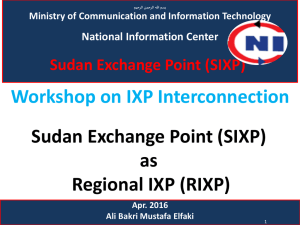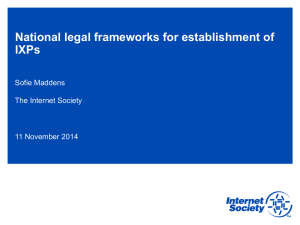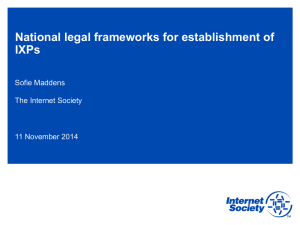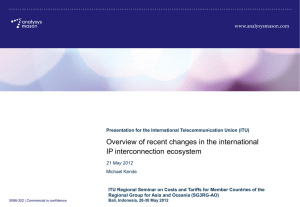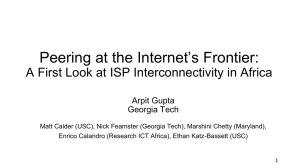The role of Governments in Creating an developing IXPs
advertisement
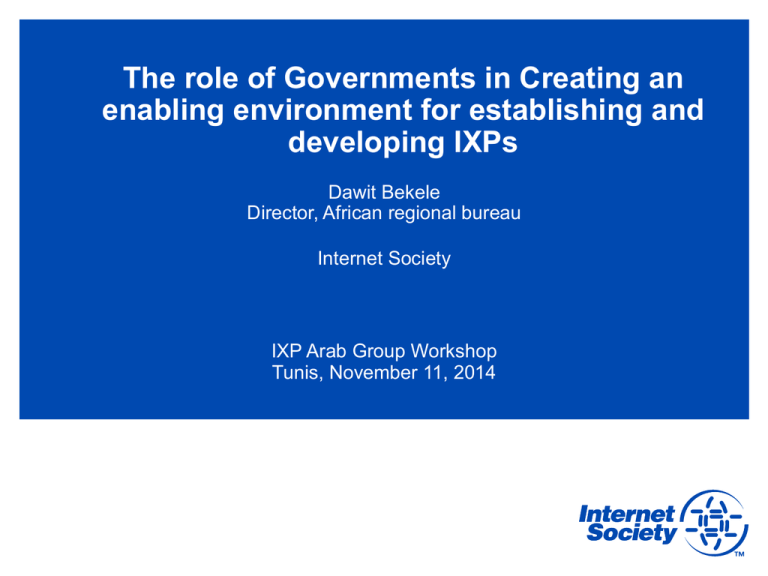
The role of Governments in Creating an enabling environment for establishing and developing IXPs Dawit Bekele Director, African regional bureau Internet Society IXP Arab Group Workshop Tunis, November 11, 2014 Outline • What is an Internet Exchange Point (IXP)? • Main stakeholders of an IXP • Role of the government 2 5 March 2014 What is an Internet Exchange Point (IXP)? • An Internet Exchange Point (IXP) is simply a physical location where different IP networks meet to exchange traffic with each other to keep local traffic local • IXPs are vital part of the Internet ecosystem, essential for facilitating a robust domestic ICT sector • Benefits of an Internet Exchange Point (IXP) 3 • keeps local Internet traffic within local infrastructure and to the reduce costs associated with traffic exchange between networks. • improves the quality of Internet services and drive demand in by reducing delay and improving end-user experience • Is a convenient hub for attracting hosting key Internet infrastructures within countries • Is a catalyst for overall Internet development 5 March 2014 IXPs Around the World Source: TeleGeography World IX Map, http://www.internetexchangemap.com/ 4 5 March 2014 Main stakeholders of an IXP § Internet Service Providers (ISPs) § Mobile Operators § National Research and Education Networks (NREN) § Content Distribution Network § Hosting Solutions Providers § Country Code Top Level Domain (ccTLD) Registry § Data-Center Operators § Telecommunication regulators § Government ministries 5 March 2014 Role of government • Supportive role of government • Use its convening power to bring stakeholders together • Provide the initial funding to establish the IXP • Participating in the board of the IXP • Potentially counter-productive role of government 6 • Operating the IXP • Regulating the IXP • Enacting laws about the IXPs, interconnection of IXPs, etc. 5 March 2014
